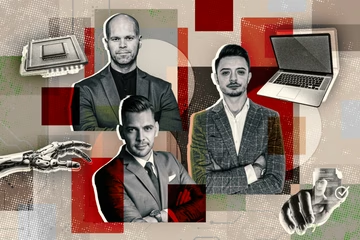
When worker’s rights are ignored, then they will rebel and support populist parties, Bosnians working and living in Germany say as they mark Labour Day marching for more worker’s rights.
In Germany, Bosnians are often described as hardworking and well integrated and for them, May 1, International Workers’ Day, is an opportunity to fight for their social rights.
One of them is Amir Aletic. He is at a May 1 protest, organized by German workers’ unions.
“In order for every worker to realize his rights, it is important that he enters one of the unions so that he can fight for higher wages, more jobs, equal pay for men and women performing the same jobs and many more things,” Aletic told Deutsche Welle.
Aletic is a politician with the Social Democratic Party in Dortmund and advocates for better rights for German and foreign workers. He said his efforts are important for stability in the country.
“In the past three years Germany is jeopardized by the rising popularity of the right-wing Alternative for Germany. It is similar to other European countries. So, if we ignore the rights of workers, that then causes a rebellion where populist parties gain followers out of dissatisfaction of workers,” he said.
To work eight hours a day, to be paid sufficiently and to have enough time for family, friends, travel and recreation is still a dream for many workers. For those who are independent entrepreneurs, the working environment and conditions are different, and they have their own benefits and drawbacks.
Business engineer of Bosnian heritage, Asad Selimanjin, is an independent entrepreneur. He said that German bureaucracy can sometimes be a barrier to the development of private businesses.
“Still, here there are mechanisms here that aid and support you. Considering that work here is still valued, one can live off of being an independent entrepreneur,” he said.
“Of course, in other countries, such as the the US and Canada you can maybe earn and achieve more with this kind of work, but here the social standard is at the highest level in the world and with that, the risk of failure is smaller. And even if it comes to failure, there are state social security mechanisms that allow you to ensure your standard of living,” he added.
Selimanjin pointed out that job security, a regular salary and social contributions are lacking for independent entrepreneurs in general, and that one must often work during holidays.
Bosnians are in Germany hailed as good and honest workers, and because of their way of life and working discipline they are not seen as belonging to the category of foreigners who cause difficulties in society. They are well integrated, and face the same issues that German nationals face.
“The third generation (children of immigrants) has many qualified workers and those I have spoken to don’t have much difficulty as they are well integrated into the society and know their rights,” Aletic said. “They are employed in public institutions and large companies.”
“There is also that group of construction workers. They work and they think they know their rights, but unfortunately, due to a lot of fluctuation within smaller construction companies in the past 20 years, today they are at the margins of society,” he explained.
“However, the times when Bosnians only worked in construction or as waiters are long gone,” he added.
Selimanjin is a second generation immigrant, and as is the case among most of the children of immigrants, he only visits Bosnia during holidays.
“Compared to Bosnia, I have to say that work is valued a lot more in Germany,” he said, explaining that he heard stories from family members in Bosnia about how they don’t get paid for three of four months sometimes, or about how employers don’t pay their contributions regularly. This, he said, is “unthinkable” in Germany.
“There are mechanisms that prevent that. I saw that myself when I was the manager in a company four or five years ago,” he said.
“It is true that society is changing and that more and more often the rights of workers and their efforts are second to the success of a company. Today, workers have a much harder time getting a permanent employment contract,” he said.
“However, taking it all into account, as long as Germany keeps developing its economy the way it does currently, I think the position of workers, compared to those in other nearby countries and those who come from the worlds top economies, will be pretty good,” he concluded.
Kakvo je tvoje mišljenje o ovome?
Učestvuj u diskusiji ili pročitaj komentare





 Srbija
Srbija
 Hrvatska
Hrvatska
 Slovenija
Slovenija



























































